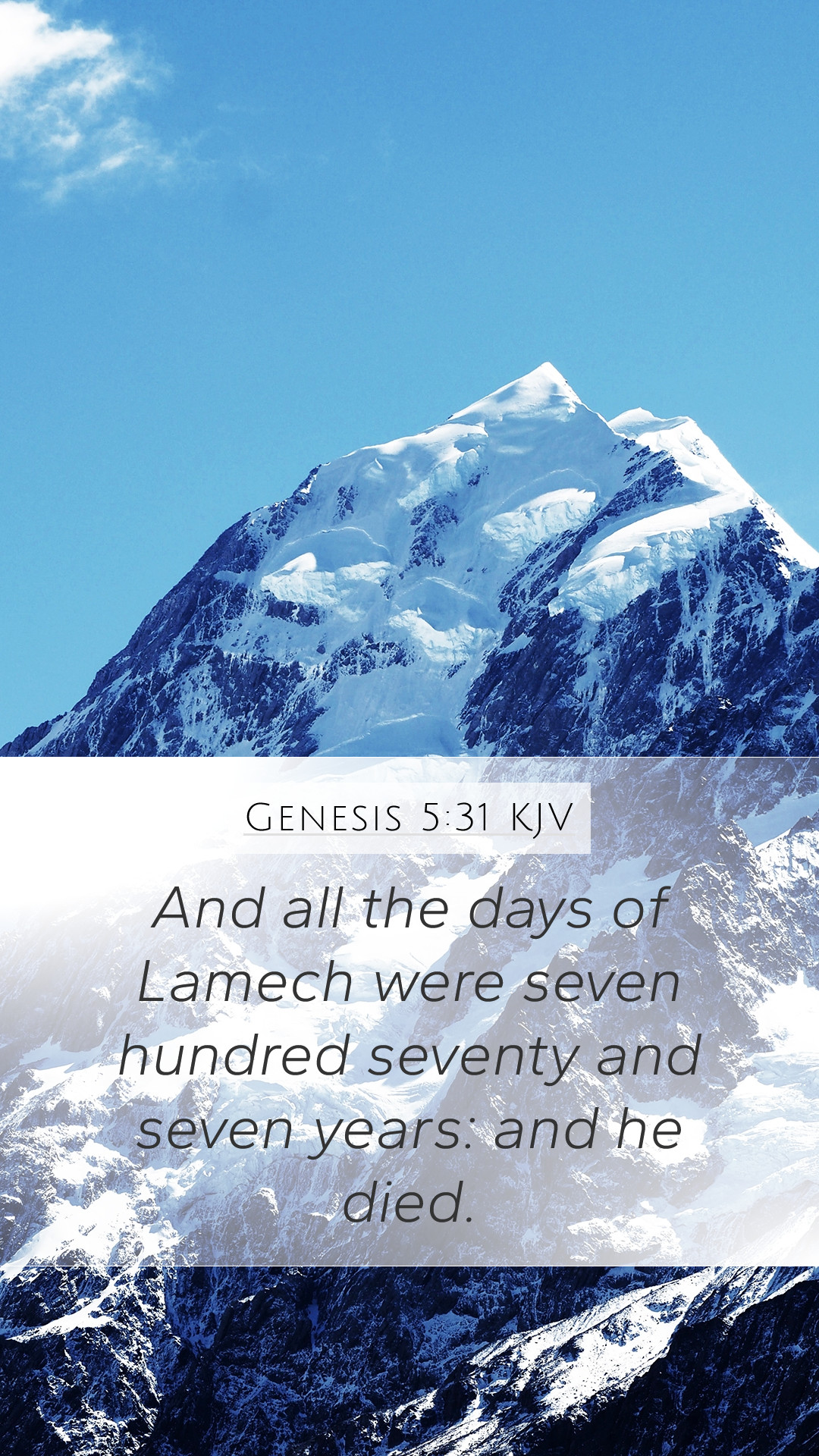Bible Verse Meaning and Interpretation of Genesis 5:31
Genesis 5:31 states: "So all the days of Lamech were seven hundred seventy-seven years, and he died." This verse captures the brevity of life and serves as a reminder of mortality within the genealogical record of Genesis.
Overall Significance of the Verse
This verse is critical in the lineage of Adam as it concludes the genealogy from Adam to Noah, emphasizing not only the human condition but also the continuity of life through generations. Lamech’s long life represents the average age of pre-flood individuals, and his death marks an essential transition in biblical history.
Bible Verse Analysis
Here, we delve deeper into the meanings and implications of Genesis 5:31:
- Historical Context: Lamech is a descendant of Cain and represents the continuation of humanity post-Eden. His lineage is significant in understanding the unfolding of God's plan for salvation.
- Lamech’s Role: As a figure in Genesis, Lamech’s mention highlights the notion of the passing of generations. His death is a pivotal moment leading to the birth of Noah.
- The Number 777: The number of years attributed to Lamech is intriguing. The three sevens may signify perfection in biblical numerology, suggesting completeness or a divine plan at work in his lifespan.
- Mortality Theme: The verse emphasizes mortality—a recurring theme in scripture—reminding readers that life is fleeting and must be cherished.
Commentary Insights
Insights from trusted Bible commentators provide a deeper understanding of the text:
- Matthew Henry: He notes that the ages of the patriarchs symbolize a long-lasting spiritual heritage, illustrating God's preservation of humanity through generations.
- Albert Barnes: Barnes emphasizes Lamech’s placement in the family line, associating it with God's ongoing covenantal relationship with mankind, notably leading to the promise of Noah’s future role.
- Adam Clarke: Clarke points to the significance of Lamech's name, which means 'despair,' suggesting a broader theological understanding of humanity's state at the time.
Application of the Verse
Understanding Genesis 5:31 is essential for grasping the broader biblical narrative. The verse invites contemplation on:
- Our own mortality and the meaning of life.
- The importance of legacy and how our actions impact future generations.
- The faithfulness of God in preserving life through generations.
Related Bible Cross References
This verse is linked to other significant biblical passages that enhance its understanding:
- Genesis 4:25-26 – The lineage of Seth and the establishment of worship.
- Genesis 6:5-6 – God's view of humanity before the Flood.
- Hebrews 11:5 – Reference to Enoch and the faith of the ancients.
Conclusion
Genesis 5:31 encapsulates the culmination of a life and the human experience of mortality, while highlighting God's providence in history. It implores modern readers to engage in Bible study insights that explore the meanings of Bible verses and encourage deeper spiritual growth.
As you explore the understanding of Scripture, consider how these ancient texts relate to contemporary life and the enduring truths they offer.


